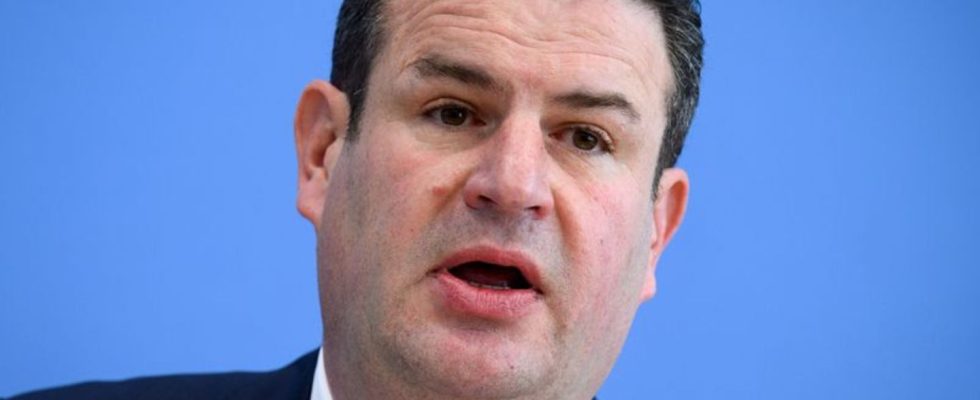Traffic light government
Criticism of Heil’s sanction plans for citizens’ money
Hubertus Heil informs the federal press conference about planned measures for labor market integration. photo
© Bernd von Jutrczenka/dpa
Because of the pressure to save money, the traffic light government is putting the red pencil on it. The labor minister wants to save millions in citizens’ money – with stricter sanctions. But there are still doubts about the plans.
The criticism of Labor Minister Hubertus Heil’s (SPD) plans for tightening regulations Citizens’ money doesn’t stop. Labor market researcher Enzo Weber from the Institute for Labor Market and Occupational Research (IAB) told the German Press Agency: “There may be abuse to a certain extent, but otherwise there is a large gray area.”
In many cases, unemployment has become entrenched and those affected often feel stigmatized. They often lack qualifications and their chances and hopes often decrease as they get older. “Don’t total sanctions also drag people into precarious jobs where a lot of things just come together?” Weber heads the “Forecasts and Macroeconomic Analyzes” research area at IAB, the research institute of the Federal Employment Agency in Nuremberg.
When will the benefits stop?
As can be seen from a draft bill available to the German Press Agency, in the event of sustained refusal to work, it should be possible to completely lose benefits for a maximum of two months. The planned regulation on the withdrawal of benefits is intended to bring savings in citizens’ money of around 170 million euros per year – 150 million for the federal government and 20 million for the municipalities. Accommodation and heating costs should not be eliminated.
At the end of December, social associations, Jusos and the Left had already warned of severe social consequences from Heil’s austerity plans. Finance Minister Christian Lindner (FDP) and politicians from the SPD and Union welcomed the move. The North Rhine-Westphalian Labor Minister Karl-Josef Laumann (CDU) supported the possible temporary loss of benefits. But it’s “really awesome when people don’t get any money for living expenses for two months,” he told the editorial network Germany (RND). “It’s essentially about making a point publicly that we demand personal responsibility.”
The draft from the Ministry of Social Affairs refers to practical reports from job centers according to which “a few recipients of citizens’ benefit persistently refuse to accept reasonable work and thus consciously maintain or do not reduce their need for help.”
Labor market researcher Weber said that the sanction options for citizens’ money were moderate compared to previous Hartz IV times. The reform introduced at the beginning of 2023 includes possible reductions of 10 percent of benefits if appointments are missed and of up to 30 percent if applications or course participation are not agreed upon.
The latest plans from the Ministry of Labor also envisage abolishing the citizen’s allowance bonus of 75 euros per month. It was introduced for further training that is not aimed at obtaining a professional qualification. To compensate for federal financing contributions in 2020 and 2021, the Federal Employment Agency should also pay back 1.5 billion euros to the federal government at the end of 2024 and 2025 and 1.1 billion euros at the end of 2026 and 2027.

